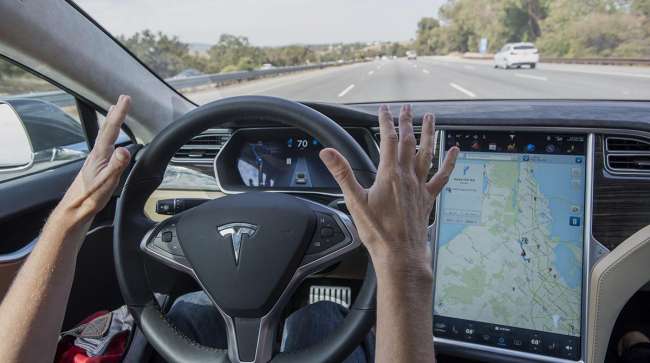Legal Showdown
The California Department of Motor Vehicles is gearing up for an intense legal confrontation with Tesla Inc. concerning allegations that the company has overstated the capabilities of its Autopilot and Full Self-Driving technologies.
The outcome of this case could lead to severe repercussions as the DMV aims to suspend or revoke Tesla’s dealer license, a move that would hinder its ability to sell vehicles in California, the state with the largest market for automotive sales.
The Stakes
The hearing, set for July 21 in Oakland, will last five days. This session holds considerable significance as Tesla faces mounting scrutiny on both coasts, particularly linked to claims from a jury trial in Miami. Here, the company finds itself in the crosshairs over a 2019 incident where a distracted driver in a Tesla Model S fatally struck a pedestrian. Tesla maintains its innocence in both cases.
Elon Musk has positioned himself as a champion of self-driving technology, asserting that Tesla vehicles are the safest on the market. However, this commitment to automated driving is now coming under fire, as numerous lawsuits and investigations into Autopilot crashes have sparked concerns about driver safety and the technology’s reliability.
监管挑战
The California DMV contends that Tesla has breached state laws through “untrue or misleading” advertisements released during 2021 and 2022. These ads claimed that the vehicles equipped with the advanced driver-assistance systems could autonomously conduct long-distance trips with no input from the driver.
In November 2023, the DMV presented an updated complaint asserting that at the time of those promotional claims, Tesla vehicles could not operate as fully autonomous entities and, quite frankly, still cannot.
Tesla’s Defense
In its legal counterarguments, Tesla has cited free speech protections under the First Amendment. The company asserts that its promotional messages were misinterpreted, emphasizing that it frequently warns customers that its vehicles require active supervision. “Tesla’s vehicles are not autonomous and require continuous driver oversight,” the company stated in a filing earlier this year.
Understanding Vehicle Automation Levels
The automotive sector classifies vehicle automation from Level 0 to Level 5, with Tesla’s Autopilot designated as Level 2. This means that while the technology facilitates certain driving functions, it still necessitates constant driver engagement and oversight.
Expert Opinions
The Miami trial has showcased the contentious nature of Tesla’s marketing strategies. Witnesses have testified that statements made by Musk regarding the vehicle’s self-driving capabilities foster a false sense of security among users. Mary Cummings, an engineering professor, noted that referring to the technology as Autopilot can mislead consumers into believing the vehicles are more competent than they actually are.
“The name Autopilot conjures up aviation safety where the technology has been refined. Unfortunately, that expectation clashes with the reality of automotive technology, which is not at that level,” Cummings commented.
Implications for the Automotive Industry
This ongoing situation sheds light on critical dilemmas not just for Tesla, but for the regulatory framework governing the autonomous vehicle landscape. With safety being a top priority, how companies market their technologies will likely face heightened scrutiny moving forward. The key takeaway? Transparency will be vital for both automakers and regulators.
Potential Impacts on Logistics
Considering the broader implications, the tension surrounding Tesla could ripple through various sectors, especially logistics. As companies incorporate more automated technologies into transport and delivery services, the need for clarity in operations will grow. Clear and truthful communication can help build consumer and regulatory trust, fundamental for the logistics industry as it evolves.
- Enhanced Safety Standards: Heightened scrutiny can encourage better practices in safety standards across all logistics companies employing automated technologies.
- 消费者信心: Greater transparency and accurate information will enhance consumer trust, vital for businesses in logistics and transport.
Takeaway
For a stress-free and cost-effective solution to your transportation needs, consider the extensive choices available through GetTransport.com. The platform promises transparency and reliability, making planning your next cargo transportation or house move seamless. Book your cargo transportation at the best prices globally at reasonable prices. Don’t miss out on what GetTransport.com has to offer! 立即预订.

 加利福尼亚州就自动驾驶汽车索赔向特斯拉发难">
加利福尼亚州就自动驾驶汽车索赔向特斯拉发难">